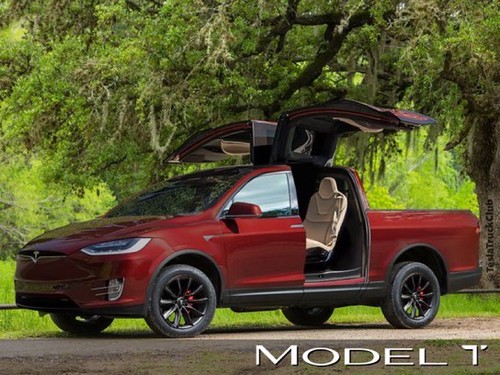I'm not a truck guy, nor an SUV guy, never have been. I lived in North Texas for almost 10 years but didn't assimilated into truck culture. I see trucks and large SUVs as vehicles with unique capabilities that are essential for certain uses. That's all.
Also, someone needs to explain to me what vegan leather is because that sounds like Vinyl to me.
My first experience with, what is now called, vegan leather was our 2000 BMW 323i. They called it Leatherette. Everyone thought it was leather but it didn't wear like leather and was easier to keep clean. We kept the car for 20 years and it held up very well. The Vegan leather in my Tesla is even better as it has a even softer feel.
Sounds like the marina parking lot may be a good place for some Level 2 chargers in the near future.
Yes, it will. With a Level 2 charger, you'll be able to get a good amount of charge added while you spend a day on the lake.
The marina can set their own rates for the charging, so as to recover the cost of installation and earn income from them, and the availability of the chargers will attract EV owners to their marina. Charging providers, such as Blink and ChargePoint, already have programs for this type of installation.
I wouldn't be surprised to see EV boats and EV jetskis, etc. Reducing the noise of the vehicles should make a day on the lake more enjoyable and less fatiguing.
Great vid from Rich on the problems with road tripping in a non Tesla EV today.
The CCS network, particularly VW's Electrify America (EA), seems to be a real mess. They are replacing the problematic hardware which, hopefully, will improve the situation. Last I checked, there were 19 CCS DC Fast Charging providers in the US with EA being one of, if not the, largest. Tesla's Supercharger network demonstrates that a fast, reliable, simple-to-use network is possible. Until the CCS networks catch up, the Supercharger network is a huge Tesla advantage.
Are apartment complexes going to put in chargers for every resident?
Yes, but they won't have to have be anywhere near 100% coverage for another three or four decades. Apartments and condos are already installing charging to attract tenants, and the chargers can be a source of revenue for them. Renters with EVs will seek out the complexes that offer charging.
I would never recommend an EV for someone who can't charge at home and, now that I have one, I won't live somewhere that doesn't have charging.
Granted, I know that's rare, but even someone with two teenagers at home would have to put in four chargers.
Any electrical outlet can be used to charge an EV. Unless every car is being driven 50+ miles per day, you don't need Level 2 charging for every car.
Tesla just lowered the cost of their Wall Connector to $350 and it is rated for outdoor installation. One in the garage, and one outside, would probably be a common solution for many 3 or 4 EV homes. They can be positioned so that the cord from one can reach at least two parking spots. Multiple Tesla Wall Connectors can share a single circuit and will coordinate the charging of multiple cars on that same circuit.
Someone who drives an average number of miles per year would only need to charge about once or twice per week so there's lots of flexibility in when each car can be plugged in. I've never heard of anyone having a problem with people pulling into their driveway to use their chargers without permission. If you did, flip off the circuit breaker when you leave.
Today, battery production is the constraining factor in the number of EVs being built. It makes more sense to build 2-1/2 300mi EVs than one 750mi range truck that would still have ~400mi range when towing. That will come, but not yet. The current EV trucks are very good for towing over shorter distances with the exceptional torque the electric motors provide. They are very well fitted for business use as they will be less expensive over their lifetime for the business, can have built in power supplies for work on the job site, and you don't waste your employees paid time having them take the trucks to refuel.
One truck doesn't have to fit everyone's needs. No one gas or diesel truck does.
Tesla's semi has demonstrated a 500mi trip, fully loaded at 82,000 pounds, on one charge. It also does (near) 1 MWh charging at something over 900 kWh. When that faster charging filters down to consumer-sized trucks their utility on long trips, or longer towing distances, will meet the needs of more truck users. It doesn't all have to happen tomorrow.
Five year ago, I doubted that Tesla would survive. Today, Lucid and Rivian is in that make it or break it stage. They both have good products but face the challenges of scaling up to higher levels of production that will lead to profitability and sustainability. I do get about half of my Amazon deliveries now from the Rivian EVD. That contract will surely help.

